Updated Oct. 26, 2021 with SEIA comment.
The American Solar Manufacturers Against Chinese Circumvention (A-SMACC), the group that filed a petition with the Dept. of Commerce to review Chinese solar panel companies allegedly circumventing antidumping and countervailing (AD/CV) duties by manufacturing portions of their products in three Southeast Asian countries, has provided additional information to Commerce as requested, but the members remain anonymous in public documents.
The Commerce Dept. requested the names of the companies in order to determine if they have any business relationships with Chinese solar panel manufacturers or perform manufacturing work in Malaysia, Thailand or Vietnam. A-SMACC revealed its members to Commerce, but their information was redacted throughout the 380-page response made public.
In August, A-SMACC filed its petition asking for an investigation into Chinese silicon solar panel manufacturing companies working in Malaysia, Thailand and Vietnam as a way to avoid AD/CV duties. Various forms of these duties have been in place against Chinese solar manufacturers since 2012. Any silicon solar imports from China come with an extra tax from Commerce. Some Chinese companies, in a possible attempt to avoid paying the tax, have moved portions of their manufacturing capacity to other Asian countries, according to the petition. A-SMACC requests additional tariffs ranging from 50 to 250% on imports from Chinese companies working in the three Southeast Asian countries.
The members of A-SMACC, represented by law firm Wiley Rein LLP, requested anonymity because of fear of “retaliation” from the various Chinese companies, including Astronergy, Boviet Solar, Canadian Solar, JA Solar, JinkoSolar, LONGi, Sunergy (CSUN), Talesun Solar and Trina Solar.
The Commerce Dept. can now decide whether to investigate these circumvention claims further. If it chooses to take up the investigation, there will be a 45-day review, with a final decision then possibly coming in late November.
Industry advocacy group SEIA has aggressively opposed the Commerce petition by A-SMACC and held a press conference with national media explaining the potential outcomes of further tariffs. Many of the country’s largest solar installers have stated that the threat of tariffs has already stalled module deliveries and jeopardizes future construction.
With no domestic silicon solar cell manufacturers, and domestic module manufacturing capacity at less than 8 GW, the United States depends on solar module imports to meet demand. The country is expected to install 30 GW of solar in 2022 and 32 GW in 2023. Without normal supply from Malaysia, Thailand and Vietnam, SEIA is predicting installs to fall to less than 26 GW in 2022 and 18 GW in 2023 — or a loss of 18 GW over the next two years.
A-SMACC believes further tariffs would boost domestic manufacturing, but with the time and financial investments needed to start domestic cell production and grow module assembly capacity, installation numbers will suffer in the meantime. And any drop in expected solar installations would put the country further behind in meeting the Biden Administration’s clean energy goals.
Oct. 26 Update: SEIA sent a letter to U.S. Department of Commerce Secretary Gina Raimondo to refute the case.
The following is a statement from SEIA president and CEO Abigail Ross Hopper on the petition and why Commerce must reject it:
Without the integrity to identify who they are and who they represent, a shadow group of anonymous petitioners are recklessly asking our government to misinterpret U.S. law, upend the lives of thousands of American families and undermine any hope we have to mitigate the devastating impacts of climate change.
SEIA was right to assert that the tariffs have failed the U.S. industry. We forecasted that the Section 201 tariffs would cause significant loss of deployment, jobs, and investment, and we now know that at least 10 GW of solar installations, 62,000 American solar jobs and $19 billion in investment has been lost as a result. Meanwhile, the petitioners in the Section 201 case expected the tariffs to lead to 45,000 new manufacturing jobs when we actually lost thousands of manufacturing jobs in the four years since.
Now the anonymous petitioners have brought on the same counsel as the Section 201 case to offer the same false promise. SEIA can confidently project that if circumvention tariffs are imposed, the U.S. will miss out on another 46,000 solar jobs by 2023, including 15,000 lost manufacturing jobs. The tariffs are ineffective, and we need long-term federal investments to drive domestic production, such as Senator Ossoff’s bill to provide a production tax credit for U.S.-made solar equipment.
The bottom line is that the climate can’t afford these tariffs. Commerce should reject these baseless petitions now because the climate, the economy and thousands of American jobs are on the line.
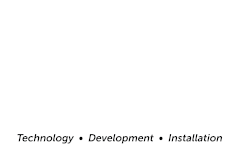
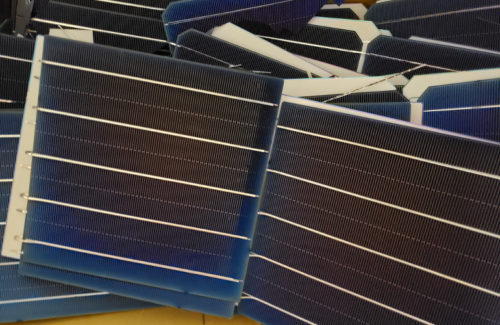
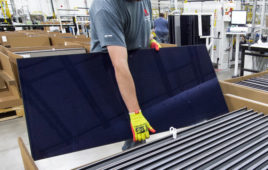
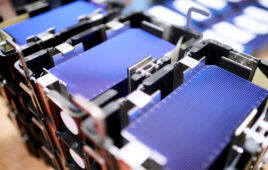
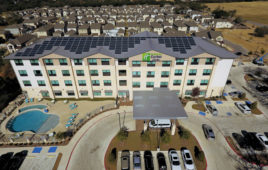

Anonymous cannot & should not be allowed to apply in such situations. Name Names & Companies for TRANSPARENCY and Validation… Anyone could be complaining, even those who do not make panels… IE Fossil Energy 5th columnists from the Koch Foundation even.
Such examples of the Failed Malignant Processes show the world just what the system IS… farcical at best.
“A-SMACC believes further tariffs would boost domestic manufacturing, but with the time and financial investments needed to start domestic cell production and grow module assembly capacity, installation numbers will suffer in the meantime. And any drop in expected solar installations would put the country further behind in meeting the Biden Administration’s clean energy goals.”
This is a ‘tell’ of depraved incompetence on some industrialists culture in a World of manufacturing ‘options’. Can’t compete, bring on tariffs to protect the already noncompetitive entities. The pundits of “thinking outside of the box” is way overrated. It seems there are some if not many that can’t “think at all” without a protectionist tariff to help them survive. Right now China is so spread out over the Globe, they really don’t need the 330 million prospective customers in the U.S. and putting tariffs on goods from these Chinese companies only hurts domestic application of technologies to wrest control of energy generation, storage and use throughout the U.S.. There are those who “think” giving lip service to slave labor, the need for protectionism for a country’s domestic manufacturing sector is going to get the “job done”. It just slows down the transfer to superior technologies giving John Q Public a choice of how one wants to take responsibility for their own daily energy needs while our very Government is mandating decarbonization of the grid by 2035. It is these types of battles that allows the continuation of the “status quo” and the subjugation of the population in a form of continued energy slavery Worldwide.
“The members of A-SMACC, represented by law firm Wiley Rein LLP, requested anonymity because of fear of “retaliation” from the various Chinese companies, including Astronergy, Boviet Solar, Canadian Solar, JA Solar, JinkoSolar, LONGi, Sunergy (CSUN), Talesun Solar and Trina Solar.”
In perspective, what ever happens with this claim and final investigation, the law firm Wiley Rein LLP will be a profit sponge for the law firm, not so much an advantage to A-SMACC.